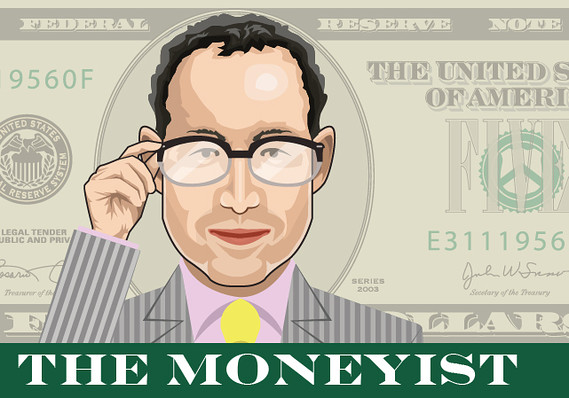
Dear Moneyist,
Please do not hammer me for presenting this idea. I understand many people feel strongly about the meaning of marriage. I dated a guy for a couple of months, but we agreed to just be friends. He wanted to continue to date, but respected my choice.
Over a couple of years, we have gotten together monthly for dinner and have enjoyed a great friendship. He is a major introvert, has a long career at the National Security Agency, has few friends and has never been married (no kids).
He asked me to marry him, so I would receive his Social Security in addition to his health-care benefits. He has made the case to me over several meetings.
This past November he was diagnosed with Stage IV lung disease, which has metastasized throughout his body. He has been told the median time frame for him to live is 6 months. I have helped him with doctors, went to an appointment with him, and remain as a close support.
He has asked me to be his estate trustee and I agreed to that. He is upset that the portion of his pension that the government contributed to over the last 30-plus years will be “lost.” He asked me to marry him, so I would receive this, in addition to his health-care benefits. He is clear-eyed about this and has made the case to me over several meetings.
I am 62, work hard at a modest career with a huge commute, put away 30% each paycheck into retirement, and have been divorced and have never intended to remarry for any reason. My financial independence has been hard fought. I have job security for at least five more years, but my retirement will be quite simple and a bit of a struggle.
He has always tried to help me, but I have not wanted to muddy the waters of our relationship. I continue to date other men, and he has dated other women, some of whom I have met, but I do not have a boyfriend.
Recommended: My husband asked me to file a joint tax return without telling me he owes back taxes
Is this ethical receiving government benefits in an arranged marriage? What if he recovers ? If I were to accept, is this money-grabbing on my part? Is this just his way to bring me closer? What other parts of this dilemma am I missing?
I have shared this with a couple of close friends and they have made strong arguments for both sides. The proponents feel that this is just a financial decision. Those against feel it is unethical to essentially marry for money.
I am leaning towards not doing this.
Unsure
Dear Unsure,
You wouldn’t be the first person to marry for money, and you won’t be the last. When people do marry for money, they tend to keep it to themselves. People marry for all kinds of reasons, for companionship, passion, children, or because they just don’t want to be alone. Some people marry even when they don’t love the person, maybe because he or she is beautiful or well connected, the person would make a good mother or father or — I’m clearly exaggerating here — has a low 18-hole handicap and would be a good partner to win the coveted prize at the country club’s “husband and wife” golf competition.
People marry for all kinds of reasons, for companionship, passion, children, or because they just don’t want to be alone.
Other people marry for love and end up hating each other, and remain tied together because of money — perhaps because one person has health insurance with their job, or because they share a home and neither wants to give it up, or they simply can’t afford to split it. Maybe they just got used to having each other around. Many couples who no longer live together or love each other — they may even loathe each other! — remain married “for the sake of the children.” That may or may not be a good idea, depending on how well they get along. Some people, of course, even end up living happily ever after. Just like in the movies.
And so to you: You both dated and now share a valuable friendship. There are all kinds of love. You can dislike a person and still love their humanity. You can love a friend who used to be a boyfriend or girlfriend, but in a different way. You can love the idea of making someone financially secure and giving them a gift that will ensure their peace of mind or bring financial stability after they’re gone. There are complications to his plan: You would, however, have to be married for nine months and/orhe would have “reasonably expected to live for 9 months” to legally claim widow’s benefits. Here are the other conditions. Ask a lawyer about any exceptions for federal employees.
See also: My brother borrowed $50,000 from my dad and never paid it back — what can we do?
I tend not to listen to the Greek Chorus of friends, frenemies or family when making important personal decisions. Sure, I have my trusted sources, but everyone brings their own political, personal and ideological views to your predicament. I don’t see this arrangement as unethical. On the contrary, it’s an act of love for a dying man to make this his last wish. Maybe it’s not an act of romantic love, but it’s an act of love nonetheless. Many arranged marriages are very successful. In fact, all marriages are — in one way or another — arranged. If anything, there are more accounts that you, if you were his widow, could benefit from.
You can love the idea of making someone financially secure and giving them a gift that will ensure their own peace of mind or financial stability after they’re gone.
Some of your friends may even feel resentful that you would also be his beneficiary to (I’m guessing) a very healthy pension, retirement plan, thrift savings plan (similar to a 401(k) or 403 (b)) and/or civil servant retirement system (if you were designated a surviving beneficiary). You may, if you were his widow, benefit from his health insurance even after he dies. This goes far beyond just Social Security, and it could help you have a retirement free from worry and financial instability. Think carefully about all of these possibilities and talk them through with your friend.
You are the very opposite of money grabbing. I’ve received a lot of letters from people who have indulged in all sorts of shenanigans over money, some legal, some involving stolen money and altered wills; some letter writers have even accused family members of murder. All for money, money and more money. Sometimes, there is a difficult moral problem where the social contract has been irrevocably broken — and for what? To settle an old score that goes all the way back to childhood or cut a sibling out of a will. You are the last person I would want to “hammer,” even if it was my style, which it’s not. Please, be kind to yourself.
I’m not telling you to marry him, and I’m not telling you not to marry him. If you are not comfortable with marrying him, maybe you have your answer. If you feel like it puts you in a spot, proceed cautiously. If it would make you feel like you’re not a good person, think twice. If this offer is made in good faith based on a loving friendship, however, give it some thought. If he wants a beloved friend to benefit from his Social Security after he dies, money that he has earned during his lifetime, that’s actually a beautiful thing. You don’t seem sure that you will live comfortably on your existing income. He is your friend and he may have found a way to help.
Whatever you decide, it’s a thoughtful and generous offer. If you go ahead with this, you could always get a second opinion from a doctor and, of course, a lawyer regarding his medical bills and other financial details, and hope that your friend has more time than six months or a year, for his sake. If he or she says your friend can only expect to live six months or he only lives six months, of course the ethical and moral quandary you find yourself in may be moot, given the nine-month rule. Marriage may deepen your friendship and enrich your life in ways you did not expect. Are you saying no for the wrong reasons? Sometimes, it’s hard for people to ask or receive help.
One final thought: Your friend has both the luxury and difficulty of knowing when he is likely to leave this planet. It’s rare that we have the ability to choose how we die. If you look at it that way, you would be doing him a great service too.
Also see: My fiancé’s father is custodian of his IRA — how can I get him to relinquish control?
Do you have questions about inheritance, tipping, weddings, family feuds, friends or any tricky issues relating to manners and money? Send them to MarketWatch’s Moneyist and please include the state where you live (no full names will be used).
Would you like to sign up to an email alert when a new Moneyist column has been published? If so, click on this link.
Hello there, MarketWatchers. Check out the Moneyist private Facebook group, where we look for answers to life’s thorniest money issues. Readers write in to me with all sorts of dilemmas: inheritance, wills, divorce, tipping, gifting. I often talk to lawyers, accountants, financial advisers and other experts, in addition to offering my own thoughts. I receive more letters than I could ever answer, so I’ll be bringing all of that guidance — including some you might not see in these columns — to this group. Post your questions, tell me what you want to know more about, or weigh in on the latest Moneyist columns.









